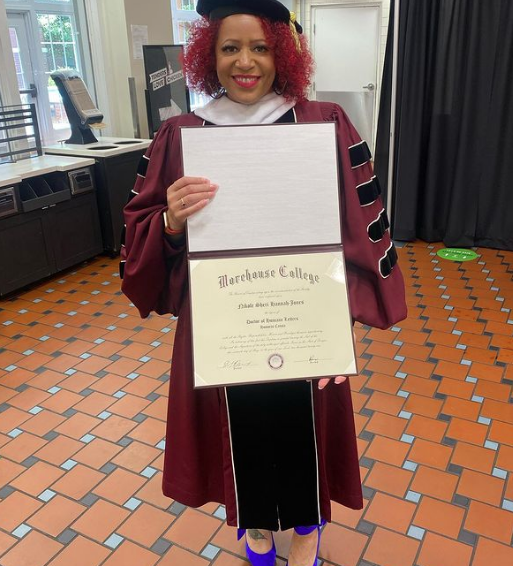Black faculty at the University of North Carolina are past a state of weariness as many seek an exit path amid ongoing racial tensions, a campus advocacy group claims.
Since Pulitzer Prize-winning journalist Nikole Hannah-Jones was denied tenure at Chapel Hill as she accepted a five-year contract for a professorship that usually comes with tenure, the UNC Black Caucus says Black faculty and graduate students are reacting by planning to leave the university.

On June 16 the caucus — a membership group for Black faculty, staff, and graduate students at UNC — claimed that “70% of attendees at today’s #unccbc [general body] meeting are considering leaving the university. More than 60% are actively job searching outside of the institution.” One Black former faculty member says the reason so many would want to leave the prestigious school boils down to bureaucracy riddled with racism that makes it nearly impossible for people of color to achieve inclusion and equality in the predominantly white higher education system.
“For some Brown and Black staff and faculty, we face White colleagues who work with us, smile in our faces, and behind our backs smear our names, quote untruths to others, dismiss our scholarship and projects, and paint us as “angry” and not the right fit,” wrote former UNC faculty member Deborah Stroman in a piece entitled, Fury and Forgiveness: Confessions of a UNC Black Faculty Alumna.
She continued, “They work to remove us in conniving ways to maintain their idea of power and reward.”
Hannah-Jones, an alumna of UNC, was recruited to serve as Knight Chair in Race and Investigative Journalism at UNC’s Hussman School of Journalism and Media. The six-figure position is tenured, or at least it was until Hannah-Jones came into the picture. Despite faculty approval, UNC’s board of trustees decided to offer the co-creator of “The 1619 Project” — a New York Times project re-examining the history of the first enslaved people who arrived in Virginia — a fixed term with a five-year contract. The trustees’ stipulation for Hannah-Jones to be considered for tenure would require her to complete the full contract.
“This interference in the tenure process puts politics ahead of progress and sends a clear message to UNC faculty that their time and expertise are unvalued,” said the caucus of the non-offer of tenure. Similar setiments were echoed from across the higher learning community.
“The 1619 Project” places enslaved people squarely at the foundation of American history, fueling debates about critical race theory, and criticism from conservatives, including former President Donald Trump as being misguiding and divisive.
Hannah-Jones, who is considered more than deserving of tenure from her peers and some UNC leadership members, is just another example of the way Blacks and women are slighted in academia. The National Center for Education Statistics stated that out of 622 professors with tenure at UNC during the 2019-20 school year, only eight were Black women. With such a small pool of tenured faculty members to represent the school, the potential absence of even one has sent shock waves through the community of faculty members.
“If we lose 70 percent of our Black colleagues, our community will be devastated, and we will all be diminished by it,” said Shayna Hill, chairwoman of the UNC Employee Forum. “How can we build a diverse, inclusive, rich tapestry of ideas and perspectives with so many of our black colleagues leaving?”
Advocates say the backlash is reflected not just among Black faculty who are considering leaving, but also across Black students who are reconsidering their choice to attend in the fall.


